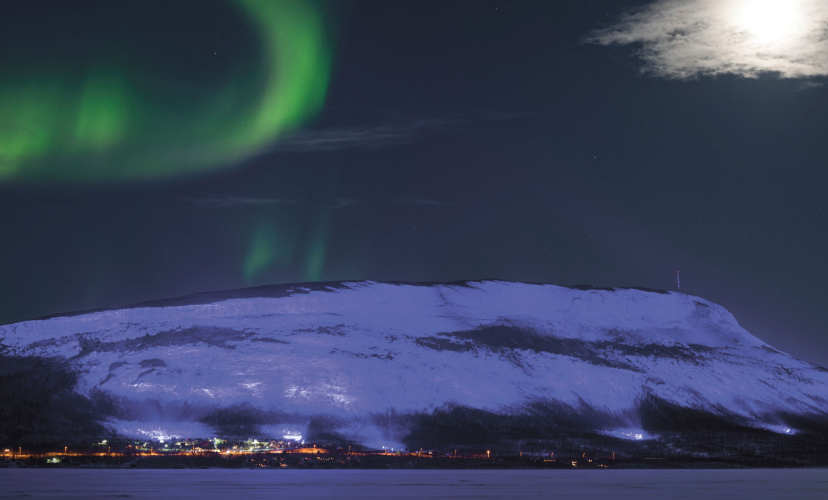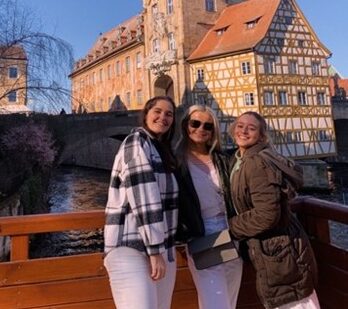

Erasmus a boost to Galway as European Capitals of Culture Status Gets Underway
Gerry O'Sullivan
Posted: 3 January, 2020
Since 1 January 2020, Galway and Rijeka (Croatia) have assumed the title of European Capitals of Culture for one year. Among the visitors to Galway City and County will be close to 700 Erasmus+ students who will undertake study visits to the National University of Ireland, Galway (NUIG) or Galway-Mayo Institute of Technology (GMIT) or traineeships in places of employment. In 2018, 422 students undertook study visits and a further 245 engaged in traineeships (placements) with various businesses in Galway.
A total of 221 (33%) students came from French higher education institutions with 124 (19%) from Germany followed by Spain on 100 (15%).
A study completed some years ago by the Erasmus+ National Agency at the HEA revealed that each Erasmus+ student in Ireland attracts about 3-4 visitors to the country so on that basis, the programme should generate between 2,500 and 3,000 visitors to Galway in coming year.
| Country of Origin of Study Visits | National University of Ireland, Galway | Galway-Mayo Institute of Technology |
|---|---|---|
| Total Number | 349 | 73 |
| Percentage Share | 83% | 17% |
| France | 115 (27%) | 29 (40%) |
| Germany | 85 (20%) | 4 (6%) |
| Spain | 57 (14%) | 12 (16%) |
| Country of Origin | Traineeships | % |
|---|---|---|
| France | 77 | 31 |
| Germany | 35 | 14 |
| Spain | 31 | 13 |
“Thanks to their title of European Capital of Culture, Rijeka and Galway will be harnessing the full potential of culture to enrich our life experience and to bring our communities closer together”, stated Vice-President for Promoting our European Way of Life Margaritis Schinas. “Promoting culture as a core element of our way of life has many positive impacts on society, in terms of social inclusion, integration and economic growth. It enables people to gain new experiences, skills and opportunities to participate in society and to make our societies fairer and more inclusive. I wish them every success in this endeavour.”
“The European Capital of Culture initiative brings people together and highlights the role of culture in promoting the values on which our European Union is built: diversity, respect, tolerance and openness”, stated Commissioner for Innovation, Research, Culture, Education and Youth, Mariya Gabriel. “A successful Capital of Culture is inclusive and meaningful to its citizens. It is also open to the world, illustrating our Union’s willingness to promote culture as a driver for peace and mutual understanding worldwide whilst bringing long-lasting socio-economic benefits to its region. I very much look forward to visiting both Rijeka and Galway and wish them every success in 2020.”
Rijeka is the first Croatian European Capital of Culture bringing it international visibility, which will extend to the rest of the Western Balkan region. ‘Port of Diversity’ will be the motto, with hundreds of projects among 250 partners from 40 countries. Rijeka’s cultural programme focuses on the themes of water, work and migration, connected to its identity, but also current issues in the wider world. The opening exhibition will feature Rijeka’s famous artist, David Maljković, with other highlights including ‘The Sea is Glowing’ exhibition; a world music and gastronomy festival – ‘Porto Etno’; and new permanent installations of contemporary art on the coastline. Opening celebrations will take place on 1-2 February 2020.
Galway is the third city in Ireland to hold the European Capital of Culture title (after Dublin in 1991 and Cork in 2005). Galway’s cultural programme motto is ‘Let the Magic In’, exploring quintessential local themes of language, landscape and migration – with a European and universal relevance and resonance. The ‘Hope it rains’ theme will use Galway weather as a source of creativity; while other highlights include a celebration of world literature – with a dramatic interpretation of the world’s oldest surviving literary epic, the story of Gilgamesh; and excerpts from Homer’s Odyssey, read on Galway beaches. Meanwhile, new installations will celebrate the beauty of Connemara and County Galway. Galway 2020 will begin in February 2020, at the start of Imbolc – the first Celtic season in Ireland’s ancient, pre-Christian calendar

